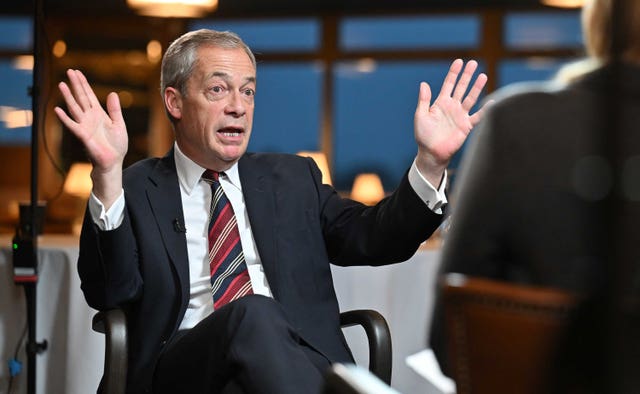The England and Wales Cricket Board has been urged to boycott next month’s Champions Trophy match against Afghanistan by a group of more than 160 politicians, including the likes of Nigel Farage, Jeremy Corbyn and Lord Kinnock.
The England men’s ODI side are due to face Afghanistan in Lahore on February 26 but there are calls from Westminster for the ECB to refuse the fixture, taking a stand against the Taliban regime’s assault on women’s rights.
Female participation in sport has effectively been outlawed since their return to power in 2021, a move that puts the Afghanistan Cricket Board in direct contravention of the International Cricket Council’s rules.
With Afghanistan’s men still allowed to compete by the ICC, a strongly-worded letter has emerged from parliament pleading for the ECB to make its own moral objection.
1) Today I, alongside over 160 parliamentarians, have written to the England and Wales Cricket Board urging them to speak out against the Taliban’s unconscionable oppression of women and girls and boycott their upcoming match against Afghanistan in the Champions Trophy. pic.twitter.com/C8Le4ytZW0
— Tonia Antoniazzi (@ToniaAntoniazzi) January 6, 2025
Penned by Labour MP Tonia Antoniazzi and signed by a wide cross-party group from the House of Commons and House of Lords, it raises the “insidious dystopia” unfolding in Afghanistan.
The statement, addressed to ECB chief executive Richard Gould, concludes: “We strongly urge the England men’s team players and officials to speak out against the horrific treatment of women and girls in Afghanistan under the Taliban.
“We also urge the ECB to consider a boycott of the upcoming match against Afghanistan… to send a clear signal that such grotesque abuses will not be tolerated.
“We must stand against sex apartheid and we implore the ECB to deliver a firm message of solidarity and hope to Afghan women and girls that their suffering has not been overlooked.”

“The ECB strongly condemns the treatment of women and girls in Afghanistan under the Taliban regime,” he said.
“The ICC Constitution mandates that all member nations are committed to the growth and development of women’s cricket. In line with this commitment, the ECB has maintained its position of not scheduling any bilateral cricket matches against Afghanistan.
“While there has not been a consensus on further international action within the ICC, the ECB will continue to actively advocate for such measures. A coordinated, ICC-wide approach would be significantly more impactful than unilateral actions by individual members.
“We acknowledge and respect the diverse perspectives on this global issue. We understand the concerns raised by those who believe that a boycott of men’s cricket could inadvertently support the Taliban’s efforts to suppress freedoms and isolate Afghan society. It’s crucial to recognise the importance of cricket as a source of hope and positivity for many Afghans, including those displaced from the country.
“The ECB is committed to finding a solution that upholds the rights of women and girls in Afghanistan while also considering the broader impact on the Afghan people. We will continue to engage in constructive dialogue with the UK Government, other stakeholders, the ICC, and other international cricket boards to explore all possible avenues for meaningful change.”
“While participation in the ICC Champions Trophy is a matter for the International Cricket Council and England and Wales Cricket Board, we are in contact with the ECB on the wider issue of the Afghanistan women’s cricket team.
“We welcome the fact that the ECB are making representations to the ICC on this wider issue and what support can be given.”
The situation brings back memories of the 2003 World Cup, when Nasser Hussain’s England side forfeited a game against Zimbabwe in protest at Robert Mugabe’s regime, with politicians advocating for the move without stepping in to make the decision on the squad’s behalf.






